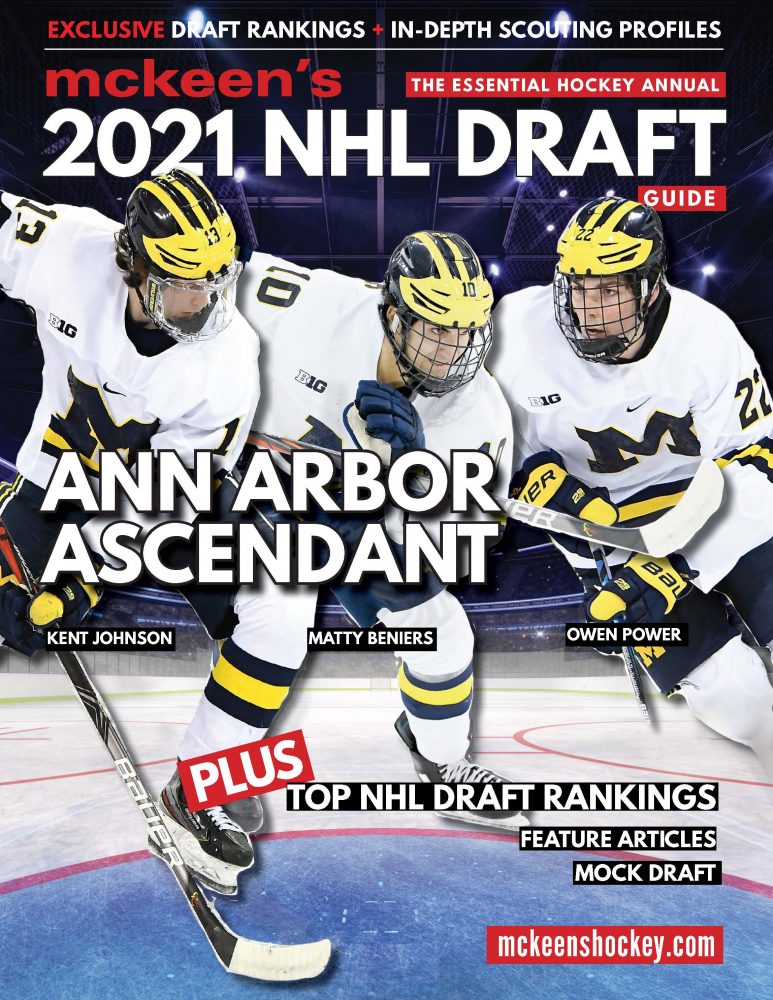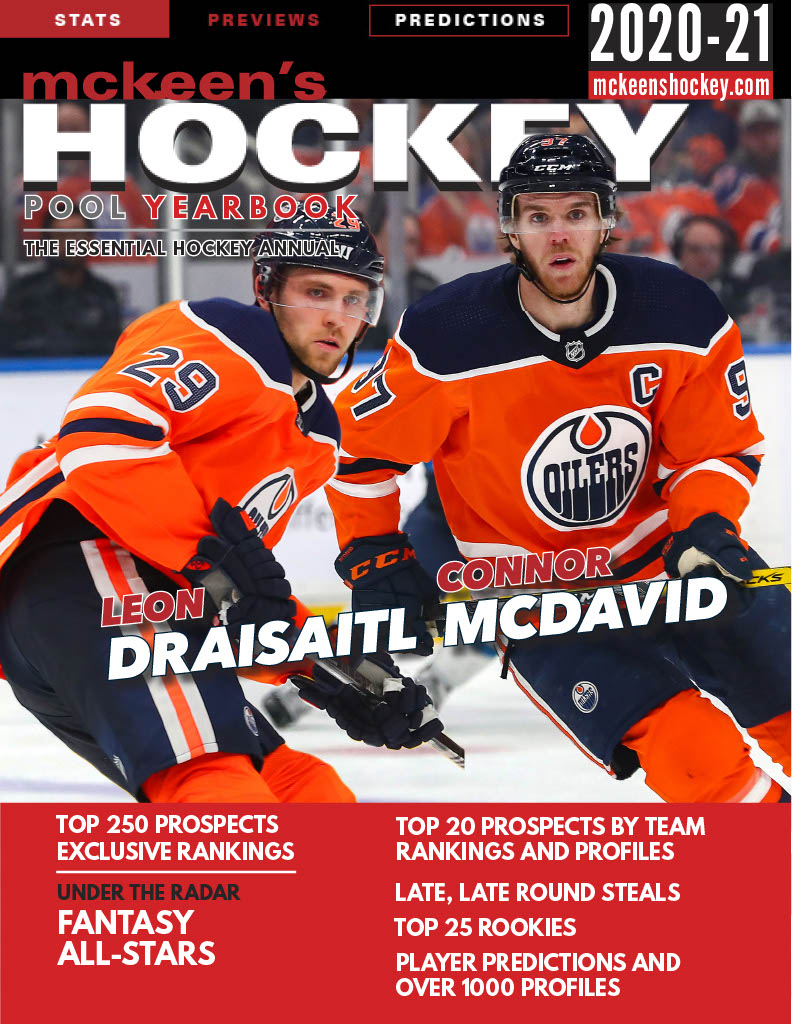McKeen's Members Get
Access to mckeenshockey.com
|
 |

Get in-depth hockey coverage:
Full access to website content, articles, charts, player and team pages including access to all McKeen’s digital magazine downloads (McKeen’s NHL Yearbook, NHL Draft Guide, NHL Prospects Report and World Junior Guide when published and available for a year)
Full access to website content, articles, charts, player and team pages including access to all McKeen’s digital magazine downloads (McKeen’s NHL Yearbook, NHL Draft Guide, NHL Prospects Report and World Junior Guide when published and available for a year)
|
 |
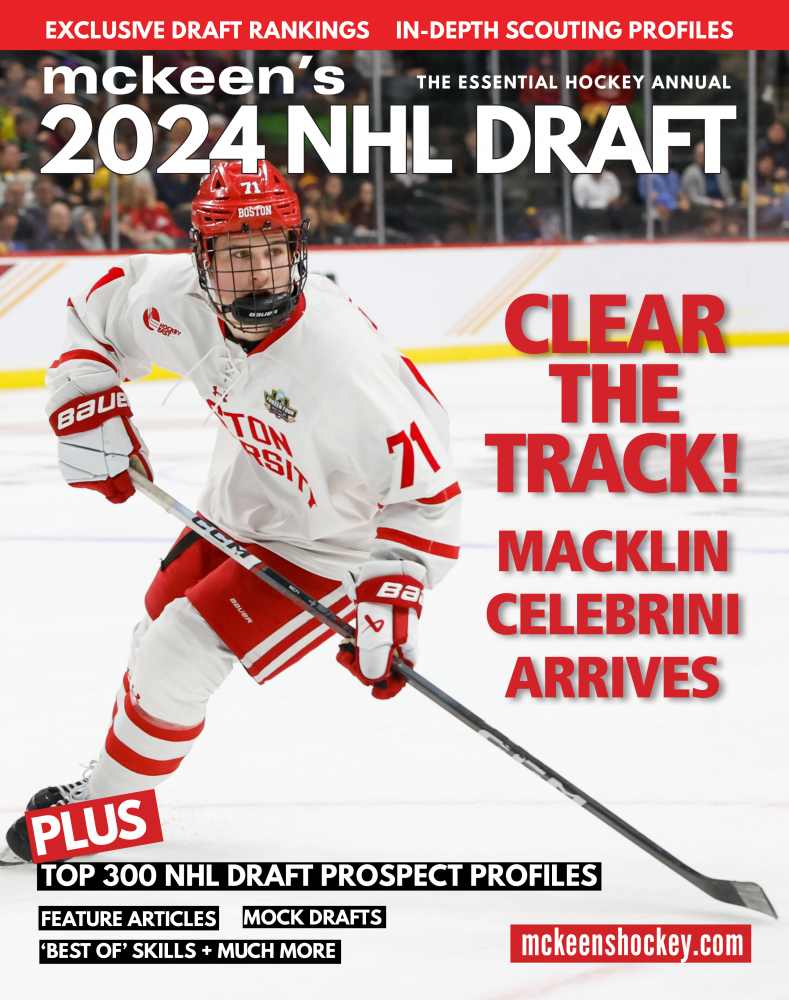
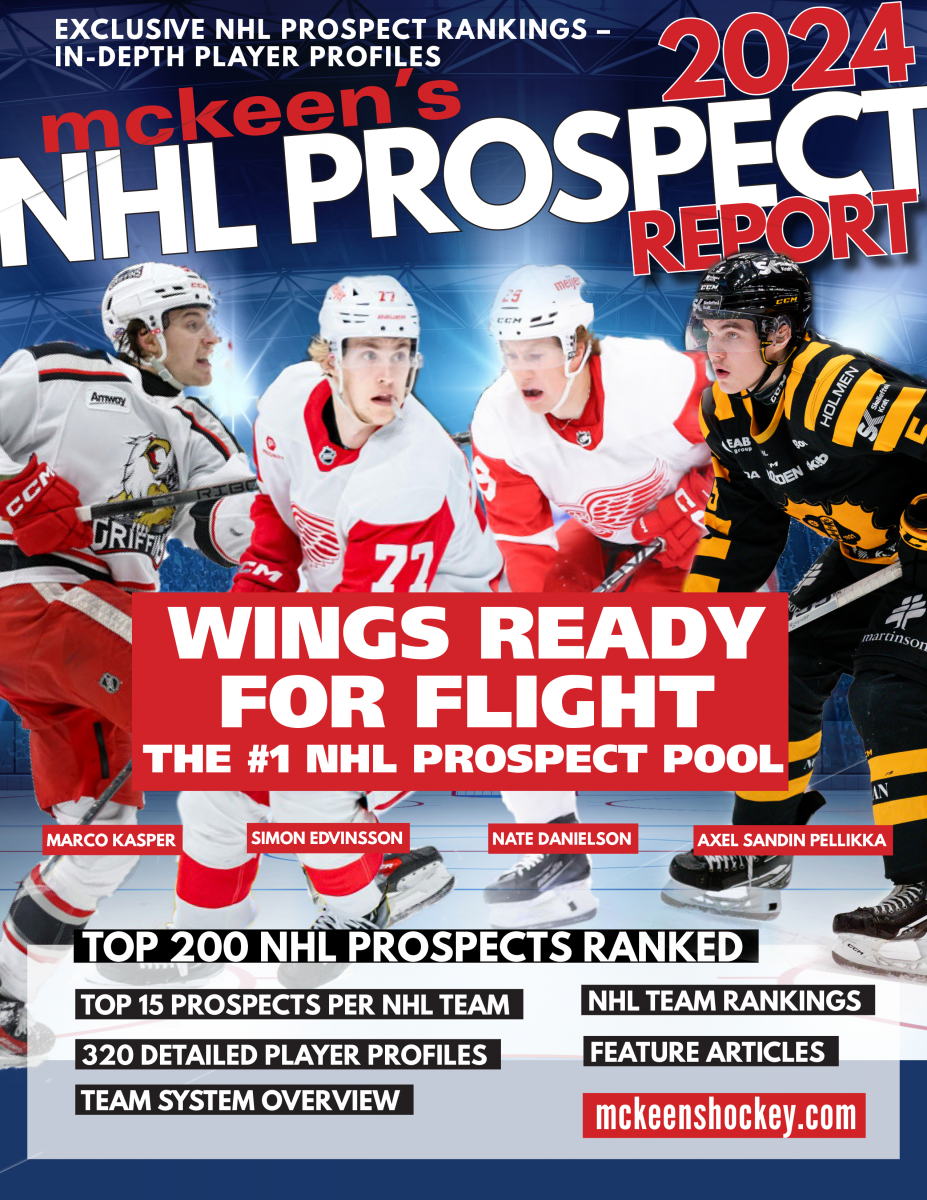
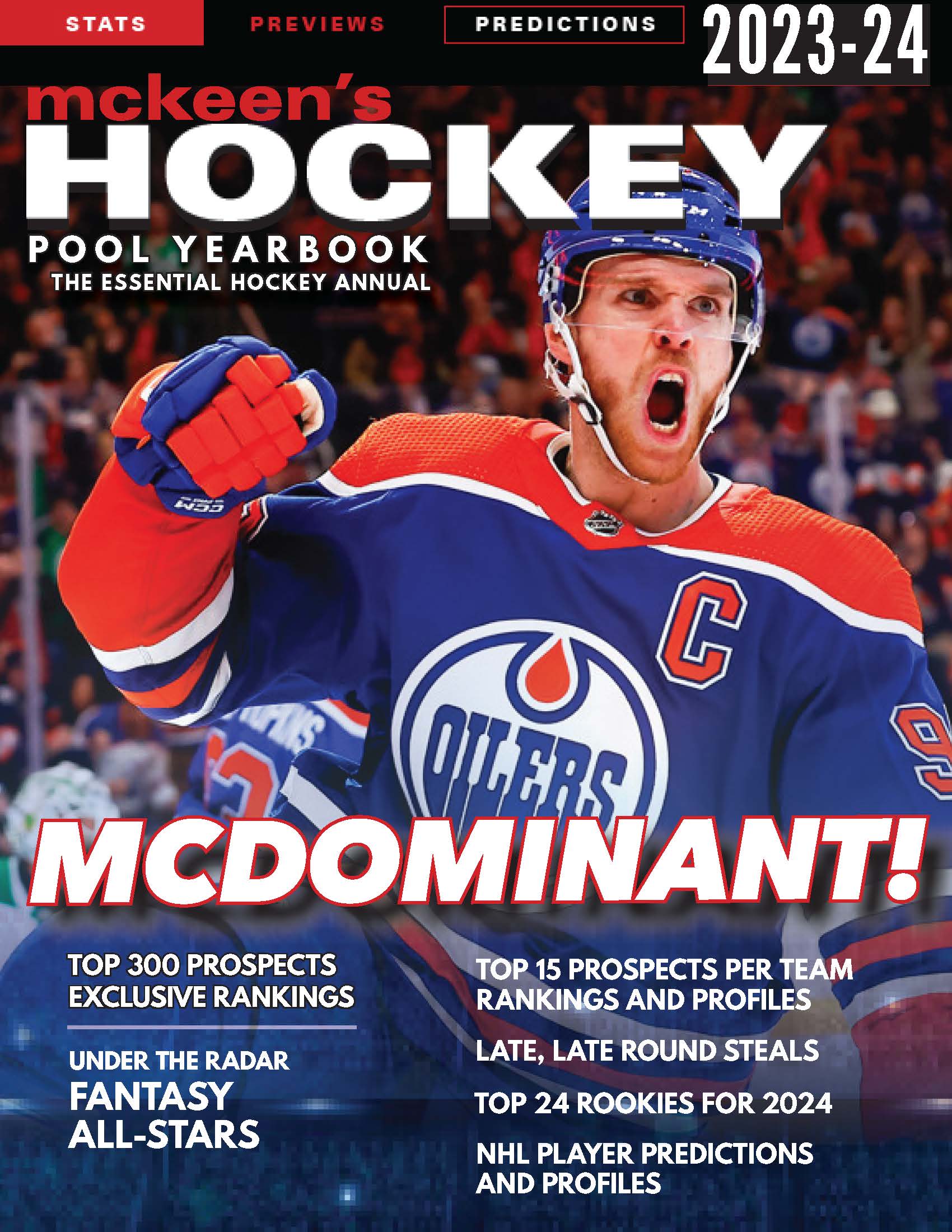
IF YOU ARE INTERESTED IN A PRINT ON DEMAND COPY OR A DIRECT DOWNLOAD WITHOUT A SUBSCRIPTION ($22.99) – PLEASE GO HERE
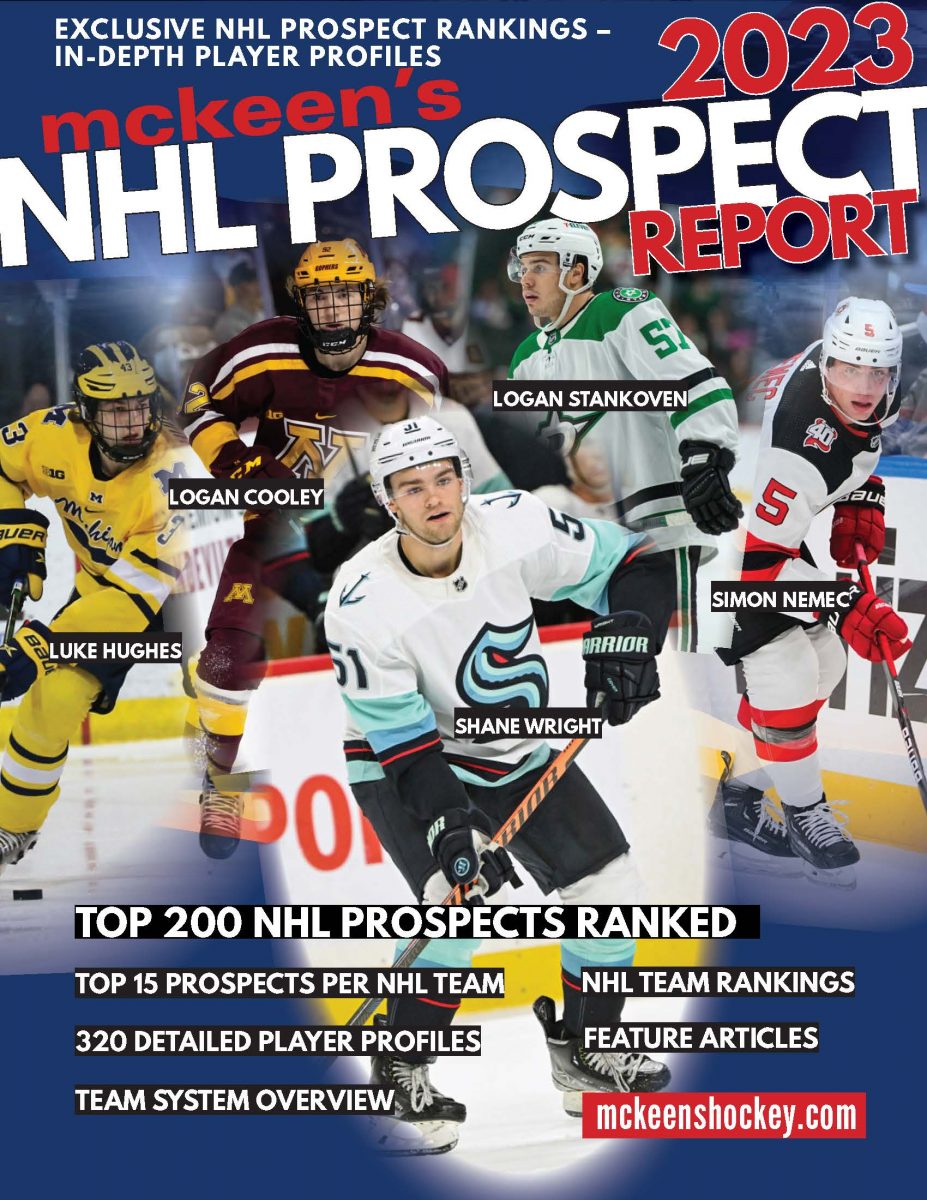
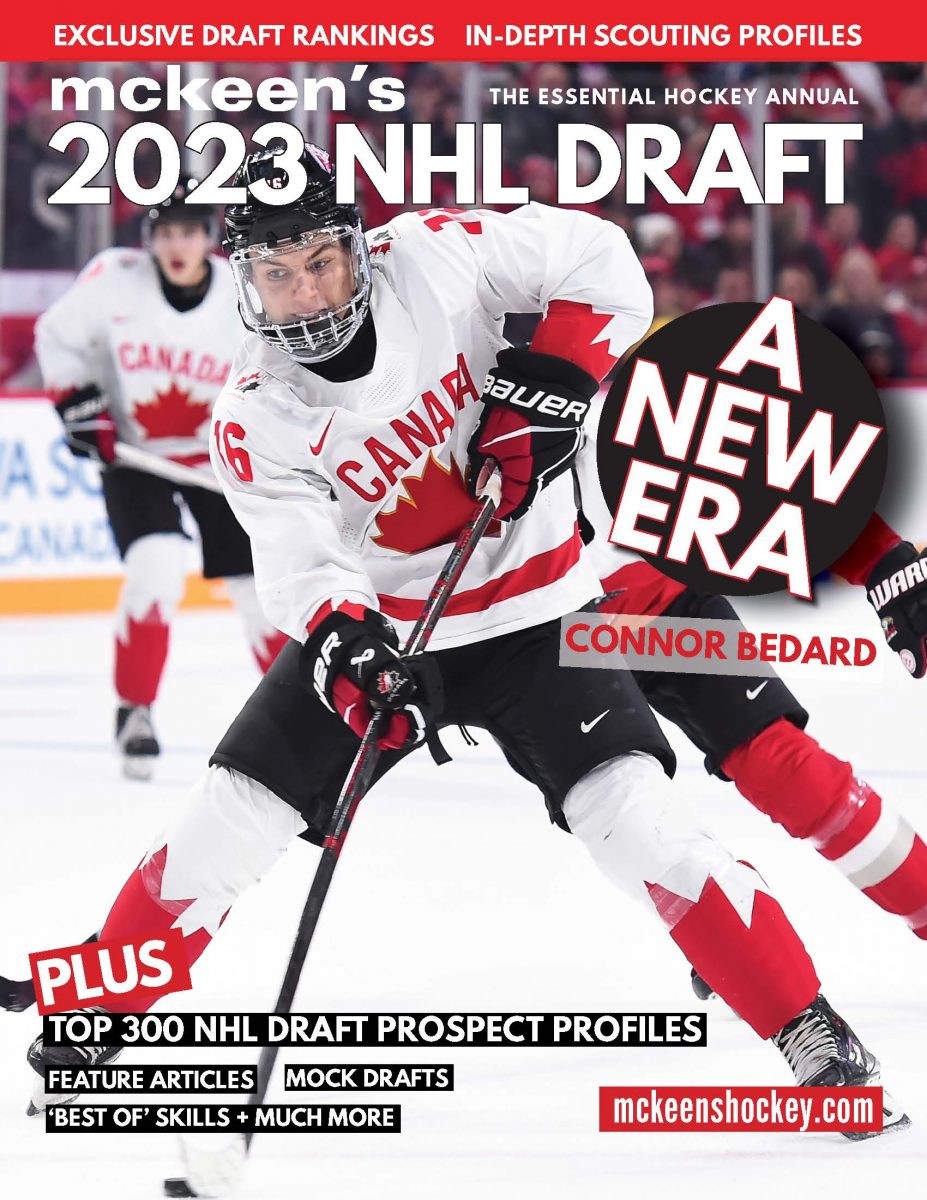
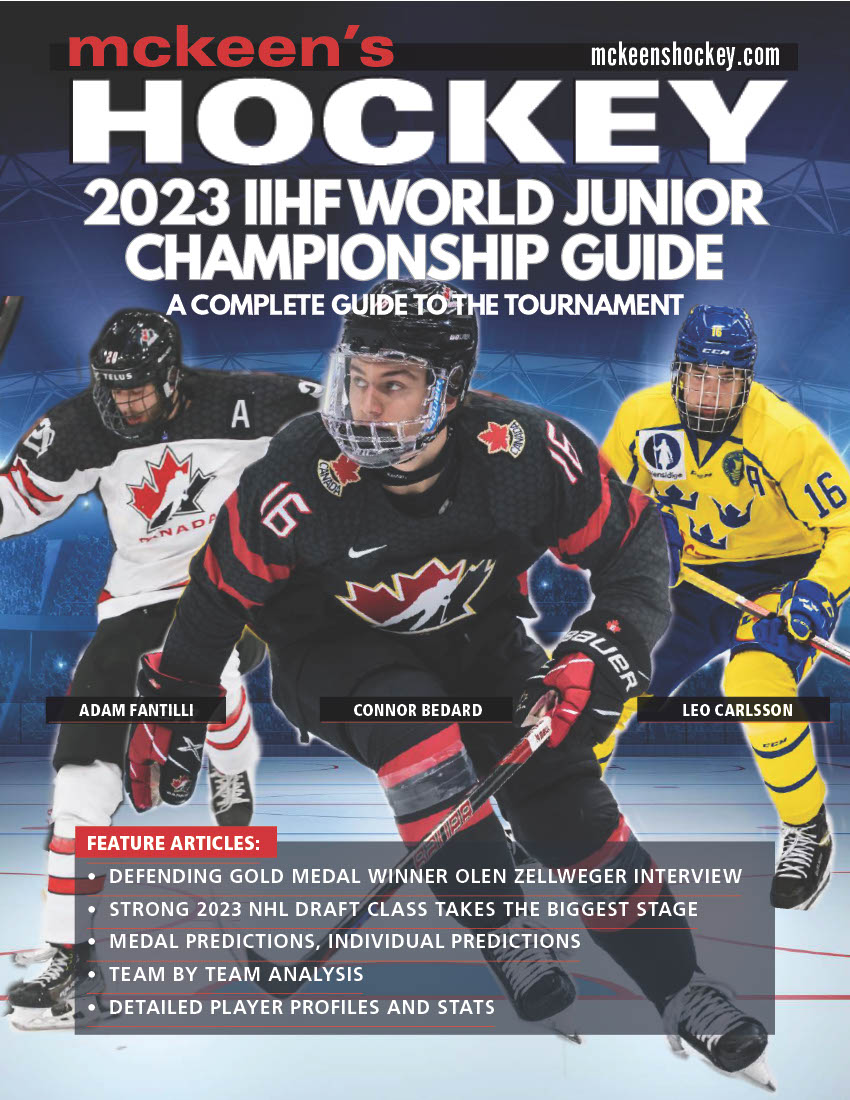
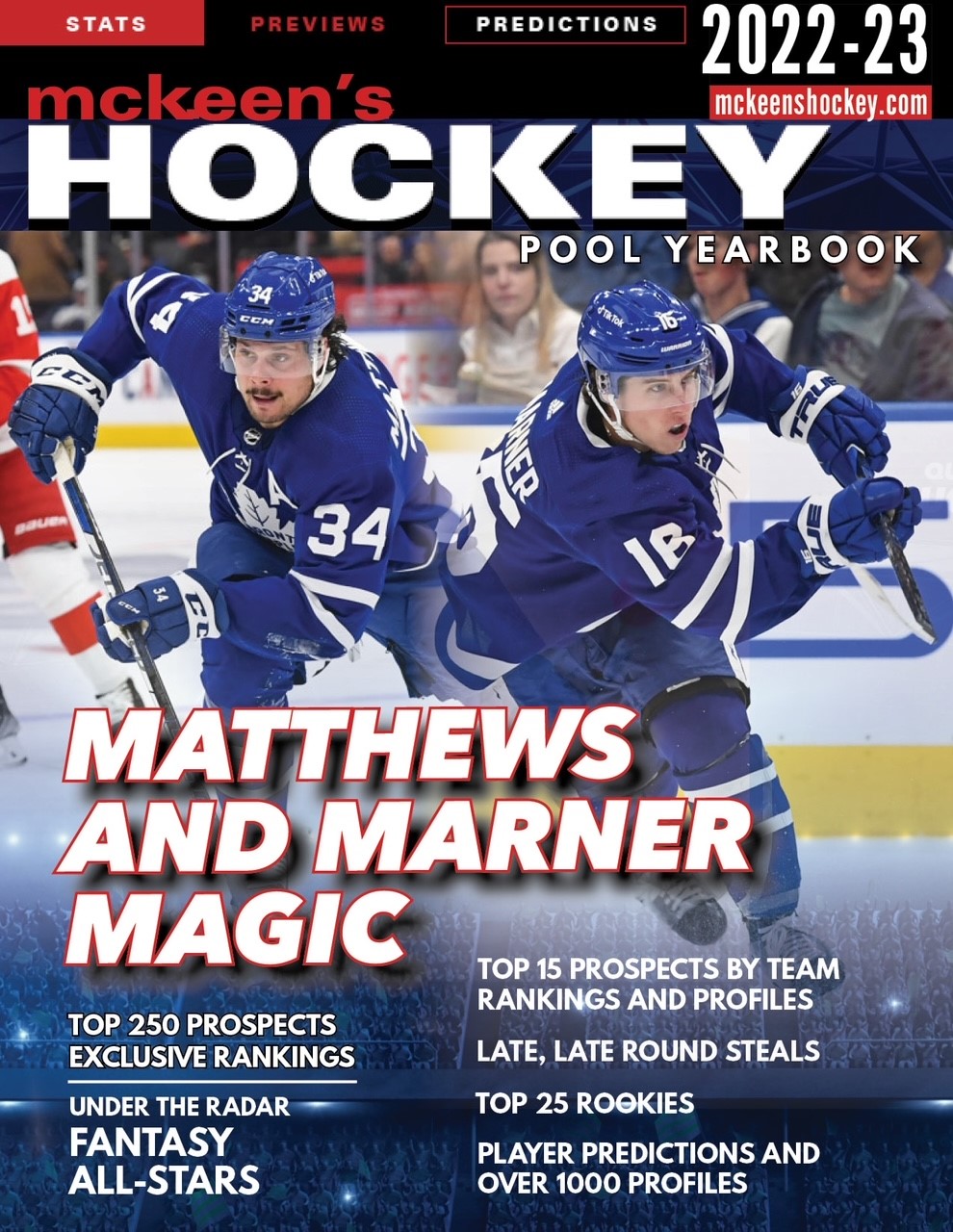
We are proud to release the 2022-23 NHL Hockey Pool Yearbook. We are thrilled with the line-up of expert writers and analysts we have on board this season to give you insight into what you can expect from players and their teams this season. Our scouting team provides deep reports on the top 10 prospects on each team with notes on the top 20. It is absolutely packed with information and you will refer to it all season long.
311 page magazine format
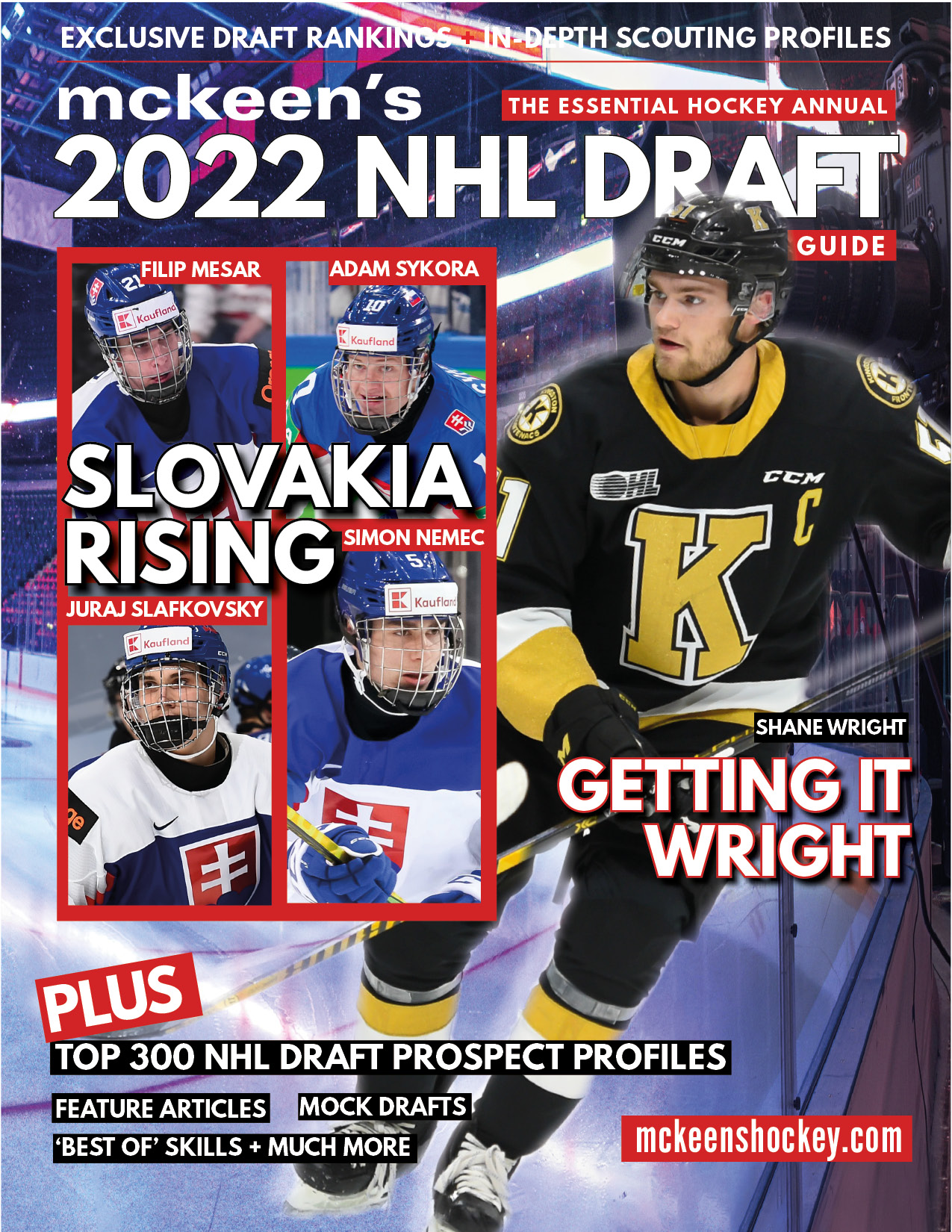
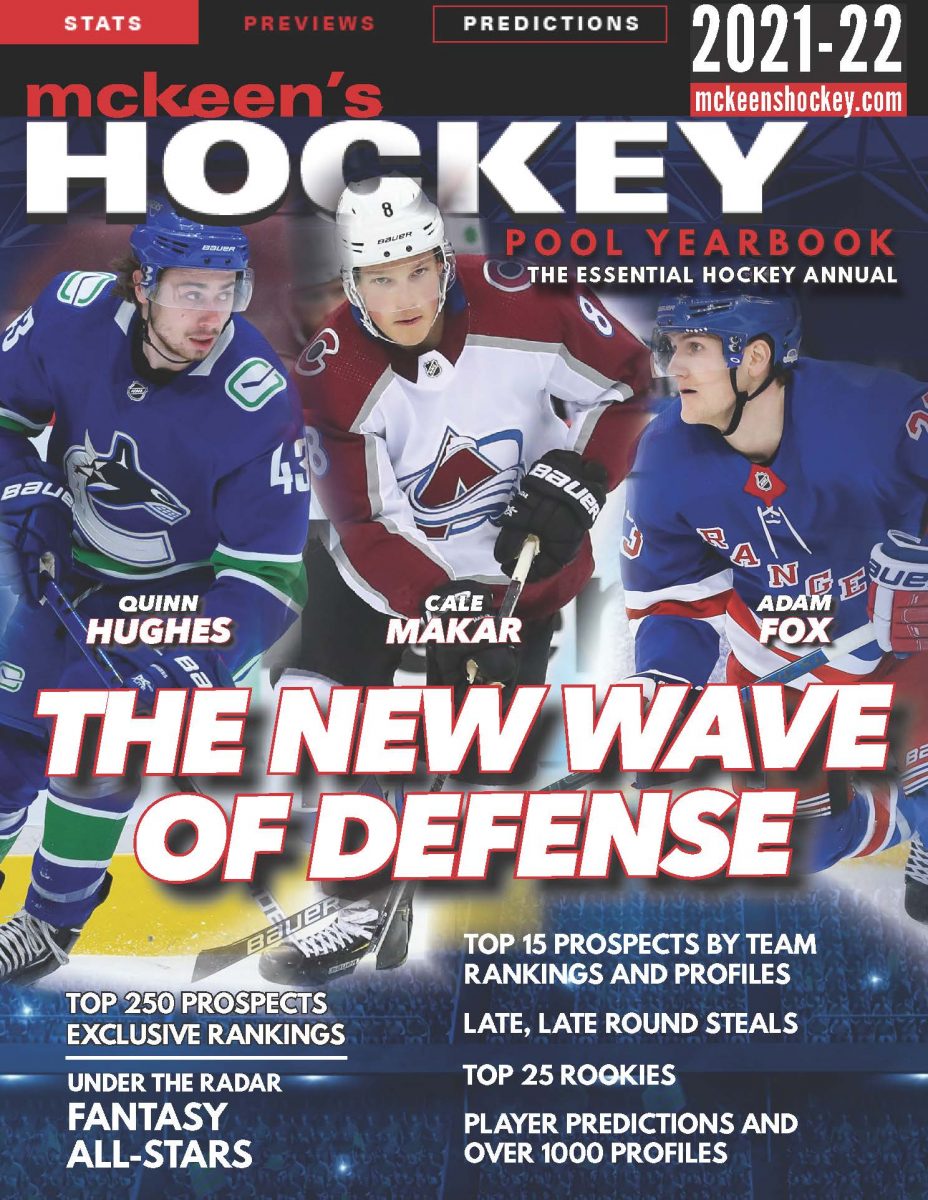
250+ page magazine format
